Resources
Discusses how college teachers can deal with multiculturalism in the classroom. Faculty arguments over diversity requirements in the curriculum; Intercultural education among students of diverse cultures and ethnicities; Strategies for multicultural discussions.
In this article, Dwight Boyd focuses on a dilemma that is at the heart of sincere commitments to cultural pluralism. When the moral aspects of cultural diversity are fully appreciated, the "dilemma of diversity" is revealed as the tension point resulting from the acceptance of the fact of "reasonable moral pluralism" conjoined with the perceived need to morally ground prescriptive intentions to promote cultural diversity within a democratic society. After discussing this dilemma, Boyd analyzes three perspectives commonly found in response. He argues that each of these perspectives is inadequate by revealing how it fails to come to grips with one or the other side of the dilemma, despite its surface appeal. He then shows how, in each of these perspectives, this failure functions to conceal and protect dominant points of view within the diversity. He concludes by sketching out a positive direction for successfully addressing the dilemma of diversity hinted at in the successes and failures of each of the three perspectives.
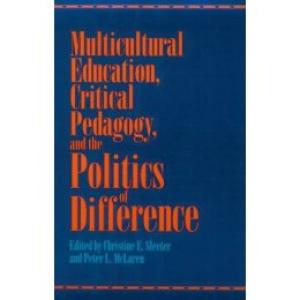
Here is a comprehensive view of leading theories and practices of multicultural education from scholars of various racial and ethnic groups. The perspectives of those often left out of scholarly debate are well represented in this book. Those perspectives offer significant insights into the ways in which dominant ideologies and classroom practices have functioned to serve only one segment of the American population. (From the Publisher)
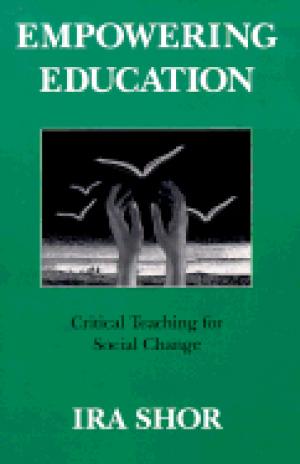
Ira Shor is a pioneer in the field of critical education who ror over twenty years has been experimenting with learning methods. His work creatively adapts the ideas of Brazilian educator Paulo Freire for North American classrooms. In Empowering Education Shor offers a comprehensive theory and practice for critical pedagogy. For Shor, empowering education is a student-centered, critical and democratic pedagogy for studying any subject matter and for self and social change. It takes shape as a dialogue in which teachers and students mutually investigate everyday themes, social issues, and academic knowledge. Through dialogue and problem-posing, students become active agents of their learning. This book shows how students can develop as critical thinkers, inspired learners, skilled workers, and involved citizens. Shor carefully analyzes obstacles to and resources for empowering education, suggesting ways for teachers to transform traditional approaches into critical and democratic ones. He offers many examples and applications for the elementary grades through college and adult education. "One of the most intelligent discussions of the unique function of education in a democratic society since the work of John Dewey. This theoretically compelling and practically useful book addresses the economic, political, and personal needs of students. Shor has emerged as the most reliable discussant of the uses of the work of Paulo Freire in the U.S."--James Berlin, Purdue University Ira Shor, professor of English at the Graduate Center of the City University of New York and the College of Staten Island, is author of Critical Teaching and Everyday Life, and Culture Wars: School and Society in the Conservative Restoration, 1969-1984, both published by the University of Chicago Press. (From the Publisher)
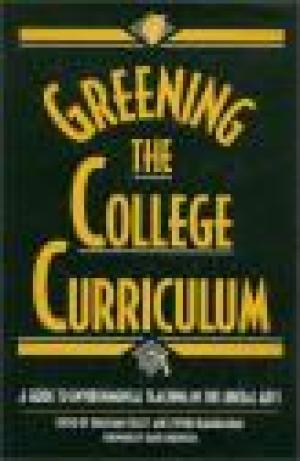
Greening the College Curriculum provides the tools college and university faculty need to meet personal and institutional goals for integrating environmental issues into the curriculum. Leading educators from a wide range of fields, including anthropology, biology, economics, geography, history, literature, journalism, philosophy, political science, and religion, describe their experience introducing environmental issues into their teaching. (From the Publisher)
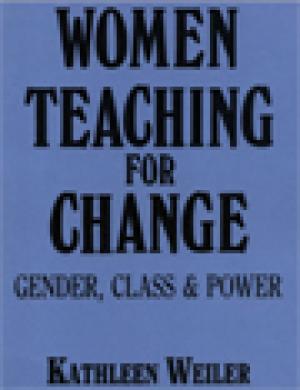
Applying theory to practice, Women Teaching for Change reveals the complexity of being a feminist teacher in a public school setting, in which the forces of sexism, racism, and classism, which so characterize society as a whole, are played out in multiracial, multicultural classrooms. "A fine book, a rich melding of critical theory in education, feminist literature, and pedagogical experience and expertise." Maxine Green, Columbia University. (From the Publisher)
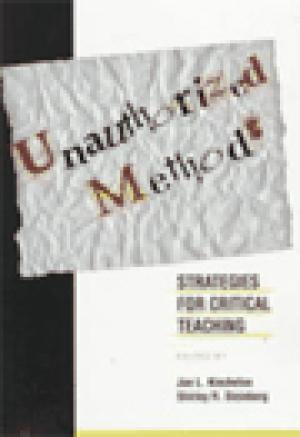
Unauthorized Methods makes accessible some of the best theoretical innovations in critical pedagogy of the last decade. The contributors consider how an integration of popular culture and cultural studies into the lesson plan can enrich and reinvigorate the learning experience. These essays, ranging widely in topic and educational level, are grounded in theory but intended for practical application. By focusing on classroom methods, the contributors provide educators with techniques, strategies, and examples designed to transform the classroom into a truly multicultural and democratic space. Unauthorized Methods will be an indispensable resource for teachers, students, and policy makers. (From the Publisher)
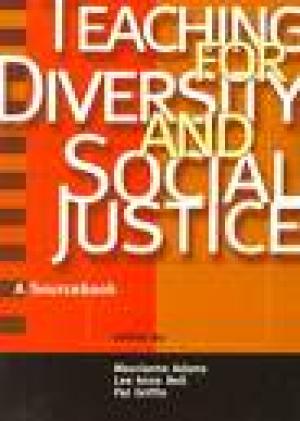
Teaching for Diversity and Social Justice is a much needed resource that addresses the need to facilitate communication and understanding between members of diverse social groups. It provides a unified framework by which students can engage and critically analyze several forms of social oppression and discrimination. (From the Publisher)